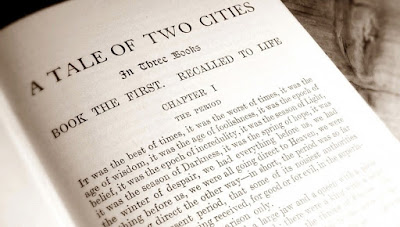What Makes a Sentence a Masterpiece?
A great sentence makes you want to chew it over slowly in your mouth the first time you read it. A great sentence compels you to rehearse it again in your mind’s ear, and then again later on. A sentence must have a certain distinction of style – the words come in an order that couldn’t have been assembled by any other writer. Here’s an elaborate, Latinate favourite, from Samuel Johnson’s preface to his Dictionary of the English Language (1755). We have to train ourselves to read complex sentences like this one, but if it’s read properly out loud by an actor or someone else who understands the way the subordination of clauses works, it may well be taken in more easily through the ear:When we see men grow old and die at a certain time one after another, from century to century, we laugh at the elixir that promises to prolong life to a thousand years; and with equal justice may the lexicographer be derided, who being able to produce no example of a nation that has preserved their words and phrases from mutability, shall imagine that his dictionary can embalm his language, and secure it from corruption and decay, that it is in his power to change sublunary nature, and clear the world at once from folly, vanity, and affectation.The sentence is elevated in its diction, but it is also motivated by an ironic sense of the vanity of human wishes. It is propelled forward by the momentum of clauses piling on top of one another.
The first sentence of any novel works as an invitation into a new world.
The Life of a Sentence
Hasn’t the sentence become dated? Gibson himself commented on Twitter recently, about his 2003 novel Pattern Recognition, that it ‘was written with the assumption that the reader could and *would* Google unfamiliar terms and references.’ It matters to Gibson that his fiction should be highly topical in ways that can also be inscrutable or dated, and that will provoke in the reader not simple incomprehension, but rather an awareness of the layering of past and present in palimpsests of language and literature.
Some literary stylists bestow greatness on every sentence without tiring their readers. Many readers feel this way about Joyce, but I have always preferred the subtler beauty of the sentences in Dubliners to the obtrusive, slightly show-offy ingenuity that afflicts every sentence in Ulysses: individually each of those sentences may be small masterpieces, but an unrelenting sequence of such sentences is wearisome. Great minimalist sentences – those of the short-story writer Lydia Davis, for instance – may have a longer shelf life.
Over a lifetime of reading, people form their own individual canon of great sentences. My canon is full of Jane Austen, whose balance of aphoristic wit, psychological insight and narrative pacing is unique. The first sentence of Pride and Prejudice (1813) is probably her best-known line: ‘It is a truth universally acknowledged that a single man in possession of a good fortune, must be in want of a wife.’ However, I have always preferred the opening line of Emma written two years later: ‘Emma Woodhouse, handsome, clever, and rich, with a comfortable home and happy disposition, seemed to unite some of the best blessings of existence; and had lived nearly twenty-one years in the world with very little to distress or vex her.’ It has the cadence almost of a fairytale, only the verb ‘seemed’ and the ostentatiously positive sequence of traits (‘handsome, clever, and rich’) hint that the novel will go on to undermine its opening assertion.
If we think of a library as a city and a book as an individual house in that city, each sentence becomes one tiny component of that house. Some are mostly functional – the load-bearing wall, the grout between the bathroom tiles – while others are the details we remember and take away, perhaps recalling their texture and colour when we assemble our own verbal dwelling-place.
This appeared at Intellectual Takeout.
Jenny Davidson
This article was originally published on FEE.org. Read the original article.


No comments:
Post a Comment